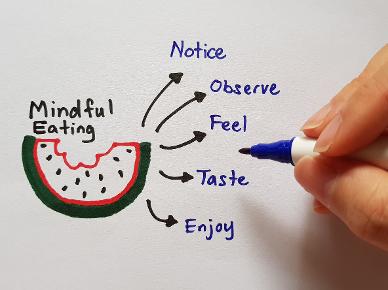What is Emotional Eating?
Emotional eating is a common issue that many people struggle with. It involves using food (over or under eating) as a way to cope with or supress emotions such as stress, sadness, uncomfortableness, boredom or loneliness. Whilst emotional eating may initially soothe or numb any difficult emotions, it does not fix the underlying problems and often results in feelings of guilt, shame, desperation or powerlessness in the long run. Therefore, a vicious cycle is created and maintained where food is used repeatedly as an emotional crutch that might provide temporary relief, but in the long run results in additional negative emotions and could create problems with body image and weight.
How can Counselling for Emotional Eating help you?
Counselling for emotional eating can provide you with a safe and accepting space where you can talk about your issues with food and how it affects you life.
We will identify the triggers and patterns that lead to emotional eating. Together we will explore the role of food in your life and the influence that significant others and important events in your life have had on how you use food. This may involve exploring your emotions, thoughts and behaviours surrounding food.
I will help you to create healthier coping strategies to manage your emotions instead of turning to food. I will also provide you with cognitive and behavioural interventions to change the way you think about food, body image and weight. I will work with you on breaking eating habits, laying down new healthier ones. I will listen to your feelings and worries and support you when you feel stuck, demotivated and frustrated.
We will address any deeper emotional issues such as stress, unhappiness, low self-esteem, trauma, depression or anxiety with the aim to improve your emotional wellbeing and thus reducing the reliance on food for coping with strong emotions.
My approach shifts the focus from weight to physical and emotional health and can support recovery from emotional eating or an eating disorder. Positive changes in the way we feel and think not only about food, but mainly about ourselves, result in changes in our behaviour (which may happen to result in weight loss). Accepting yourself and your body, being self-compassionate, understanding and addressing the underlying emotional issues, and eating and exercising with physical and emotional health as the goal will lead to a life where eating becomes an enjoyable experience and satisfies your body's need for nutrition and energy.

